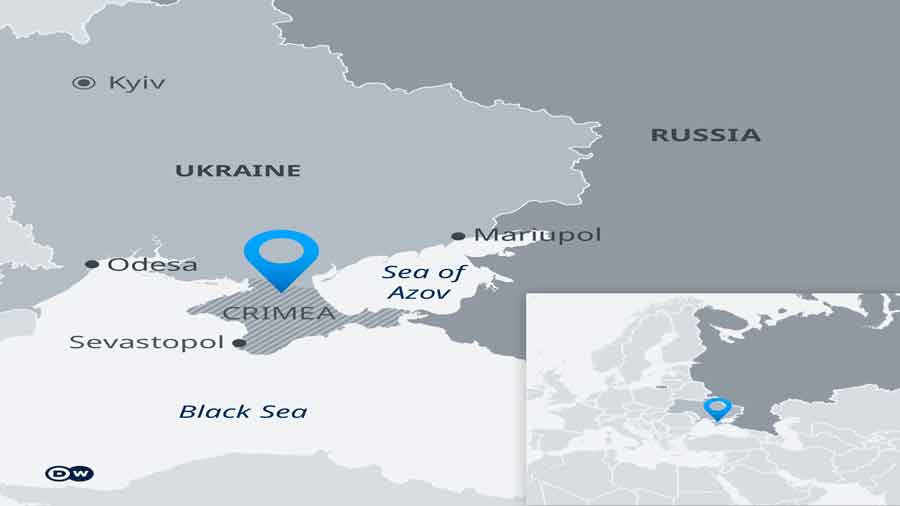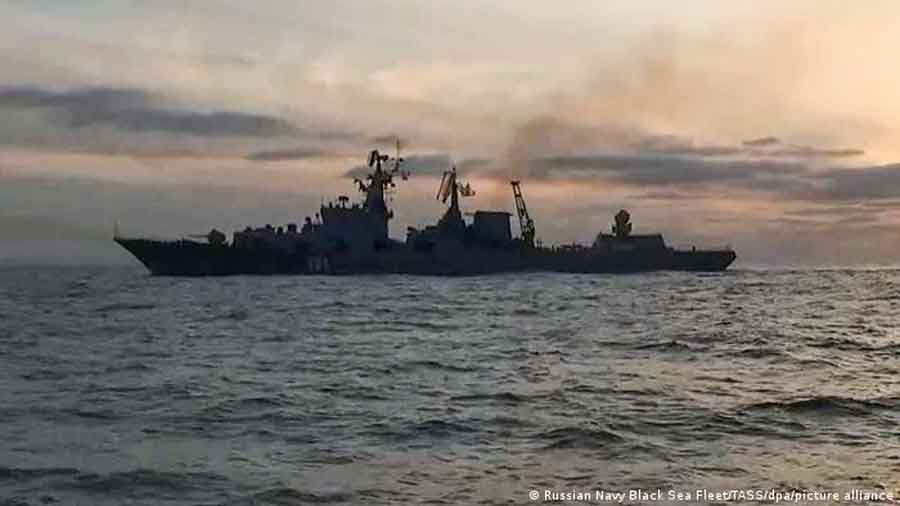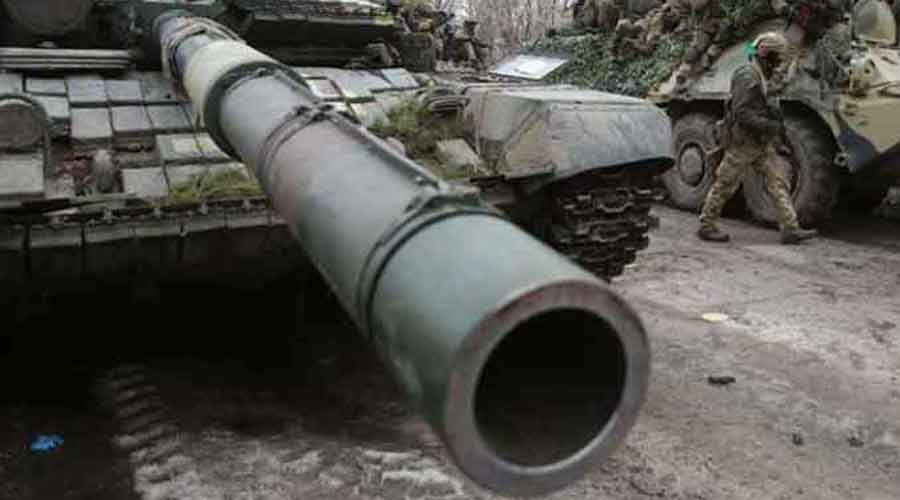"The war began in Crimea — and it will also end there." In his weekly video address, Ukrainian President Volodymyr Zelensky made it very clear that he did not intend to give up the peninsula Russia illegally annexed in 2014.
Just before the address, there had been several heavy detonations at a Russian air base near Novofedorivka in the west of Crimea. It seems likely that this was a targeted attack by Ukraine although there has been no official confirmation, and Kyiv has denied responsibility for the blasts.
If it did turn out to be a military attack, it would be the first on the peninsula since its annexation eight years ago, and of similar symbolic significance as the April sinking of the Moskva, the flagship of the Russian Black Sea Fleet. This could be why Russia has not described the Crimea blasts as a Ukrainian attack.
According to Moscow, it was merely a case of some ammunition exploding due to poor handling.The risk of further escalationThe bombing of targets in Crimea would have a different significance for Russia than the war in Donbas and the rest of Ukraine. Moscow regards the peninsula, which was annexed in violation of international law, as its very own national territory and, following an internationally unrecognized referendum, as part of the Russian Federation.
According to a Russian interpretation, attacks on Crimea would mean the war had shifted to Russian territory — threatening a further escalation of the war.
But Ukraine continues to regard Crimea as part of its own territory too. "We are going to liberate all our territories, all of it all, including Crimea," Ukrainian Defense Minister Oleksiy Reznikov told US broadcaster CNN in mid-June — even if his adviser Yuriy Sak said that "the most important thing" was "to push the enemy back to achieve the withdrawal of the army of the aggressor at least to the level before February 24."
A long and controversial history
For Moscow, Crimea is even more important than the rest of Ukraine. It was under the control of Russia for more than two centuries. Many ethnic Russians were settled there by the tsars in the 18th and 19th centuries, and Soviet leader Stalin continued this policy in the 20th century. Today, the large majority of the population is pro-Russian.
In the Soviet Union, Crimea initially belonged to the Russian Soviet Socialist Republic (SSR). It was only in 1954 that it was given to the Ukrainian SSR by order of Stalin's successor time Nikita Khrushchev, under circumstances not fully clear to this day. One reason may have been that Khrushchev himself was a native Ukrainian.

After the collapse of the Soviet Union, Crimea officially became Ukrainian territory, even though Kyiv was never able to fully assert its authority and the majority of inhabitants were pro-Russian in their outlook. Kyiv granted the peninsula autonomy status — and concluded lease agreements with Russia — for the strategically important port of Sevastopol for instance.
This is where the Soviet Black Sea Fleet was stationed, and also currently the only major port used by Russia that remains ice-free all year round. The lease agreement gave Russia military access to the Black Sea, and to a crucial economic hub.

Up until 2014, Russia's lease of the port was not an issue. But then the Euromaidan protests began in Kyiv and the pro-Russian president, Viktor Yanukovych, was overthrown and fled to Moscow. Suddenly, the Kremlin saw a danger of losing Sevastopol and all of Crimea to the defensive military alliance NATO, should Kyiv turn more to the West. Russia decided to annex Crimea — in violation of international law.
A fragile connectionPart of Russia's goal in its current war with Ukraine is to further consolidate its hold over Crimea. In addition to conquering the Donbas, the Kremlin has declared the creation of a Russian-held land corridor from there to Crimea to be one of its most important aims.
With further conquests in southern Ukraine, Putin would be creating further facts: A return to the status before the annexation would become virtually impossible.
Ukraine would be completely cut off from access to the Sea of Azov, and since Crimea extends into the Black Sea like a giant wedge, Russia would also be able to control and block all shipping bound for the last remaining Ukrainian Black Sea port of Odesa. The fierce fighting for the small Snake Island suggests that this is also one of Russia's war goals.
How realistic is a return?It is not clear however, how far Kyiv is prepared to go to bring Crimea back under its control.
The return of the peninsula is "an issue that needs to be negotiated diplomatically," government adviser Sak said. Yet how a possible return is to be achieved by negotiation is very unclear for now.
Given the current balance of power, the strategic importance of Crimea for Russia, as well as the loyalty of the vast majority of its inhabitants to Moscow, it currently seems very unlikely that Crimea will become Ukrainian again any time soon.











